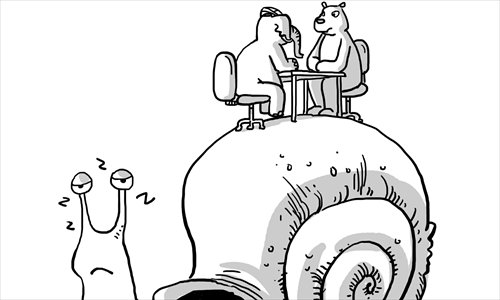India-Russia agreements slow but significant

Russian President Vladimir Putin will undertake a crucial and much-awaited visit to India later this month.
India and Russia will be deliberating on some 20 bilateral documents when Putin holds formal talks with Indian Prime Minister Manmohan Singh in New Delhi on December 24, 2012.
Diplomatic sources said the two sides are hopeful of getting at least 10 agreements out of these talks. This means that the rest of the agreements would continue to be on the Indo-Russian platter, though it will be some time before they bear fruit. The agreements are likely to involve defense, space and other bilateral issues.
According to a senior Indian diplomat, it is quite a slow grind when it comes to Indo-Russian bilateral interactions. Bilateral agreements between the two sides take quite some time. In many cases, it is years, before a document is inked. It takes even longer for the signed agreements to come to fruition. He attributed this to the heavy bureaucracies on both sides.
He said that he took over about three years ago in a key position in the Indian Ministry of External Affairs, and the bilateral agreements he negotiated then are coming into operation just about now. In the Indo-Russian engagements it is quite natural that discussions about bilateral agreements consume years and the agreements first brought to the table in 2009 or even before are only ready to be implemented now.
Therefore, there is nothing surprising about the fact that though at least 20 bilateral agreements would be on the high table occupied by Putin and Singh, only up to 1o agreements are likely to be formally inked.
For example, it was many years ago when the Indians and the Russians pledged themselves to the first of the several units of the Kudankulam Nuclear Power Plant (KNPP), to be built in the Indian region of Tamil Nadu with Russian help. However, it is only now, some four years later after the agreement was signed, that the nuclear power plant will be finally started. Unit 1 of the KNPP is set to be commissioned while Putin is on Indian soil.
Russia is a valuable partner in India's national civilian nuclear energy program. The commissioning of Unit 1 of the KNPP will be a tangible milestone of Indo-Russian nuclear cooperation. Indian Foreign Secretary Ranjan Mathai has gone on record in assuring the critics of the KNPP that the nuclear plant will be absolutely safe.
So much so that the owner of the plant, the Nuclear Power Corporation of India Limited has gone to the extent of assuring the Indian Supreme Court by way of an affidavit that the Kudankulam plant is truly safe despite the challenging events in recent times when the safety of nuclear technology has come in for extra scrutiny globally.
The Indian government has also gone on record several times as saying that enough scientific studies have been undertaken and experts have given credible assurances on the high safety and security parameters of this plant.
Other areas where India and Russia have been collaborating intensely and very closely for past many years are space and science and technology.
In the space sector, India and Russia have worked together on technologies which can integrate into platforms that India is developing. Access to the whole spectrum of the Global Navigation Satellite System signals by Indian agencies is a major component of Indo-Russian space cooperation. This is matched by robust cooperation on important projects like Chandrayan 2, the Human Space Flight and YouthSat.
The Integrated Long Term Program for S&T cooperation is a unique model which the two partnering countries have tried to replicate in other global scientific ties. India and Russia have already undertaken more than 400 joint projects in areas ranging from basic sciences to cutting-edge technologies.
There is scope for further improvement since India needs to play catch up with other countries who are investing heavily in research and development. A major challenge is how to apply these from the laboratory to the assembly line and use them for the greater public good.
In this context, Mathai has paid rich compliments to the Russian scientists by remarking: "The great record of Russian science makes this a partnership of great value."
Significantly, India would be looking forward to working closely with Russia to push some major investment projects in science and technology. True, some Indo-Russian investment episodes in other fields have been mired in controversies and been log-jammed, but this will not deter the two sides from discussing more areas of cooperation when Putin holds talks with the Indian leadership later this month.
Again it is Mathai who has flag-marked the areas of future cooperation in this context. This is what he said on record: "We need to look beyond and capitalize on the opportunities which will come with Russia's accession to WTO and by the expansion of the Eurasian Economic space, a vision which President Putin himself is pioneering. We hope to start focused discussions soon on a Comprehensive Economic Cooperation Agreement with the Customs Union between Russia, Kazakhstan and Belarus."
The author is a New Delhi-based journalist-author and a strategic analyst. bhootnath004@yahoo.com